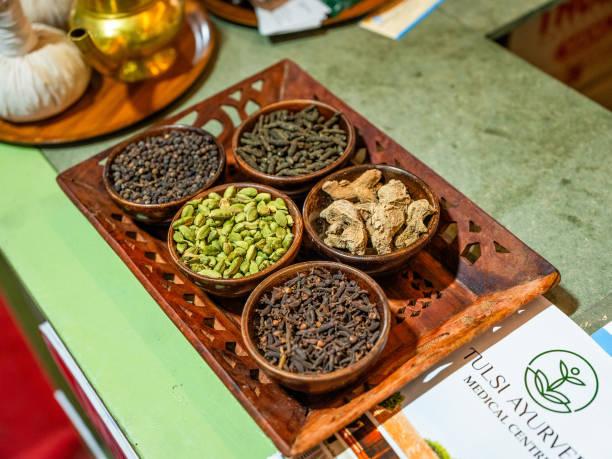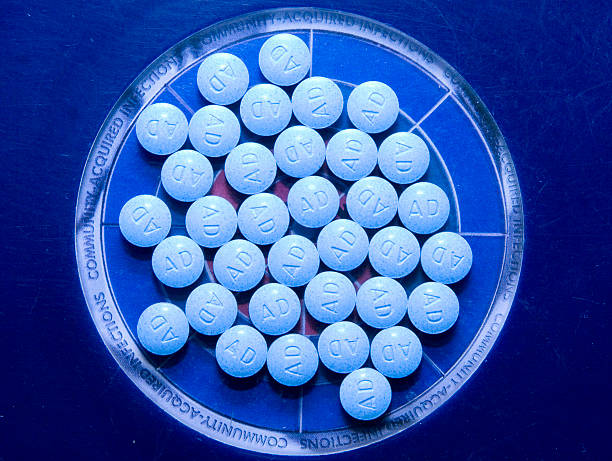Addiction
Addiction definition as commonly understood
The most commonly accepted definition of addiction is when a person cannot control a behaviour or their use of a substance, even when it harms them. This term comes from the Latin word for “being a slave to something.” It can involve any behaviour or substance.
The important thing is how it affects a person’s struggle to regain control. It goes without saying that addiction is a disease.
As per this definition of addiction, this condition alters brain chemistry, affecting interactions with life’s various aspects. There are three primary ways addiction impacts an individual:
- A strong desire, craving or obsession for the item.
- A loss of control over its use.
- Continued use despite it causing harm.
Common addictions include smoking, gambling, illicit drugs, misusing prescriptions, sexual behaviours, and technology. Some intertwine with ordinary activities, like shopping or eating. However, these behaviours become reckless and harmful.
According to the commonly accepted definition, addictions negatively impact all areas of one’s life. They can damage the body and mind. Furthermore, individuals often distance themselves from family and friends and face work-related challenges. These issues lead to increased isolation and life difficulties.
A synonym for addiction is dependency, but as we will explore, these two terms do have slightly different definitions. It is not just about the substances; it is about the hold certain actions have over our lives. Recognizing this is crucial for seeking and providing help.
Underlying conditions of addiction

Addiction is a complex disorder characterised not by the act of substance use itself. Rather, it is marked by the emotional and psychological state of an individual in the absence of intoxication.
It is a misconception that addiction is solely related to the act of being under the influence. Instead, its core lies in the individual’s feelings and experiences when sober.
The act of engaging in substance use or addictive behaviours simply offers a temporary escape from deep-seated emotional distress. It is a temporary solution, and it doesn’t address the underlying issues.
The nature of addiction suggests that it can preexist the actual use of substances, stemming from an innate emotional struggle. This indicates that addiction may have its roots in an individual’s emotional state from birth, regardless of substance use.
This perspective supports the idea that addiction might be an inherent part of an individual, potentially independent of external factors like childhood trauma.
Does addiction have a root cause? Or is it a disease without an obvious source?
Contrary to common beliefs, addiction does not always stem from negative experiences or environments. Individuals with addictive behaviours can come from various backgrounds, including nurturing and fulfilling ones.
This diversity suggests that addiction is a complex mix of genetic predisposition and psychological factors, rather than being solely a product of one’s environment.
A significant aspect of addiction is the constant search for external validation and reward. This pursuit often goes beyond substance use and can include various life achievements and social acceptance.
Substance use becomes a means to temporarily alleviate feelings of inadequacy and disconnection. It provides a transient sense of normalcy and confidence, which is otherwise lacking.
As addiction progresses, there is an escalating reliance on external solutions to address internal issues. This progression is marked by increasing substance use and the pursuit of other external rewards, leading to a cycle of temporary relief and long-term destruction.
This pattern highlights the necessity of addressing the underlying emotional and psychological issues in addiction. It emphasises that external solutions, such as substance use or other compensatory behaviours, cannot resolve the internal conflicts at the heart of the disorder.
Understanding addiction requires recognizing it as a condition demanding a holistic approach to the individual’s emotional and psychological well-being.
Recognizing this issue requires understanding, compassion, and appropriate treatment. Addiction hotlines and counsellors can provide essential support, guiding individuals on the path to recovery.
Is addiction a disease?
Addiction is a health condition of the mind that causes emotional pain and suffering. It involves not being able to stop using a substance like drugs or alcohol, or can’t stop an activity like gambling, even when it’s harmful.
But as stated, addiction is a disease that begins before the consumption of a particular substance or the adoption of a behavioural problem. It often starts because the person wants to feel better or forget about their inherent problems.
At first, using the substance or carrying out a certain behaviour might make them feel a sense of ease and comfort or help them forget their worries. This is why they start doing it more often.
However, after a while, these substances or activities don’t give the same good feeling as before. The person might try to use more of the substance or carry out the behaviour more often to get that feeling back, but it becomes harder each time.
Despite this, they feel like they can’t stop. This is because their body and mind start to rely on it. Stopping can make them feel really bad physically and emotionally.
Usually, people with addiction need help from doctors, counsellors, or support groups to quit and stay away from what they’re physically addicted to. This help is important because stopping can be extremely difficult, and having support makes a big difference.
Recognizing addiction as a disease is key to addressing it effectively. It requires a comprehensive approach, combining immediate assistance with sustained support from professionals who understand the various types mentioned above.
Important addiction definitions: Obsession and craving
Obsession
Obsession in the context of addiction is a complex psychological phenomenon. It extends beyond the compulsion to engage in certain behaviours, such as drinking or drug use. It is a powerful, often irrational belief that the outcome of these actions will be different each time, despite past experiences suggesting otherwise.
This cognitive distortion leads to repeated, uncontrolled behaviour. This is where initial intentions, such as having only a few drinks, are quickly overrun by the overwhelming need to continue the addictive behaviour, often leading to dangerous and uncharacteristic actions.
The difference between an individual’s behaviour under the influence and their personality when sober can be stark. A person may lead a responsible, respectable life (challenging the typical stereotype of an addict). This contradiction shows the nature of obsession in addiction. Compulsive behaviour does not discriminate based on external success or social standing.
Do brain chemistry and dopamine still play a role?
Obsession in addiction is not just a physiological response to substance use. However, changes in brain chemistry and the reward system still play a significant role. It is instead often tied to the person’s core identity and how they perceive themselves and their place in the world.
This deeper aspect of obsession can manifest in the inability to cope with emotions independently, leading to resentment and attempts to control external circumstances to achieve personal happiness.
Recovery from this form of obsession involves recognizing and addressing its underlying emotional dimensions. It requires a fundamental change in how individuals perceive and interact with the world, often necessitating ongoing support and personal development. This shift is not solely about abstaining from addictive substances.

Why Choose Us?
It involves learning to deal with emotions, accept life’s realities, and relinquish the obsessive need for control. The journey towards recovery is often marked by a transformation in values, where tolerance, acceptance, and love replace resentment and the compulsive pursuit of personal ideas of perfection.
In essence, overcoming obsession in addiction is about learning to face life on its terms, choosing happiness and reality over the illusion of control and perfection.
Craving
Craving, in the context of addiction, refers to an intense, often overwhelming desire to engage in substance use. This includes – but is not limited to – drinking alcohol or using drugs. It is a psychological response that becomes activated after introduction of a substance or behaviour into the body.
For instance, consuming alcohol can trigger a powerful craving for more alcohol or other substances like drugs. This craving is so powerful that the individual has a loss of control, driven to continue their substance use despite any initial intentions to limit consumption. It is characterised by a relentless pursuit of the substance, where rational decision-making is overpowered by the need to satisfy the craving.
In this context, substance use is not a choice but a necessity dictated by craving. It is a force that chooses the individual, dominating their actions and decisions. The craving is so dominant that it can lead to repeated, harmful behaviours. The individual may deeply regret these behaviours but feels powerless to stop.
Are craving and obsession the same thing?
The difference between craving and obsession in addiction is subtle but significant. Craving is a powerful urge that occurs in response to the presence of a substance in the body. This leads to an immediate need for more. Meanwhile, obsession is a persistent preoccupation with the substance or the act of using it.
Obsession is characterised by constant thoughts about the substance, even in its absence. It is a mental fixation that can lead to planning and scheming to obtain and use the substance.
In contrast, craving is an immediate, intense desire that arises after the substance is already in the system. It is a more acute response, driving the individual to seek more of the substance.
Obsession, on the other hand, persists over time. It influences behaviour even when the substance is not physically present or recently consumed.
Understanding the distinction between craving and obsession is crucial in addiction treatment.
Addressing cravings often involves managing the physical and immediate psychological responses to substances, while dealing with obsession requires a deeper, more prolonged approach, often involving psychological and recovery programs to change the underlying thought patterns and emotional responses associated with addiction.
Addiction definitions: Dopamine
Addiction involves an alteration in brain chemistry, primarily involving dopamine. Dopamine, known as the ‘feel-good’ chemical, plays a crucial role in the brain’s reward system. When engaging in pleasurable activities, dopamine levels spike, creating a sense of euphoria. This mechanism is a part of the definition of addiction.
Substances or behaviours associated with addiction can trigger a dopamine release far exceeding that of everyday pleasures. This excessive dopamine release overwhelms the brain’s natural capacity to process pleasure. In response, the brain attempts to protect itself by reducing dopamine production and decreasing the number of dopamine receptors. This adaptation leads to a significant change in how pleasure is experienced, a phenomenon known as tolerance.
As tolerance develops, the initial ‘high’ experienced from addictive substances or behaviours diminishes. Despite this reduced effect, the individual continues to crave the intense pleasure once associated with these activities. This pursuit can lead to more consumption or more extreme behaviours, in an attempt to recapture the first experience.
The brain, flooded with dopamine during these behaviours, forms strong associations with the environment and context of these experiences. This means that some locations, situations, or even people can trigger desires for the substance or behaviour. It can cause problems for those trying to be sober.
Addiction is not about willpower; it is a disease. For individuals who want help, resources offered by InnerLife Recovery, such as addiction hotlines or consulting with an addiction counsellor can provide support and guidance. These professionals understand the intricacies of the issues and offer strategies to manage and overcome them.
What are the defining elements of each stage of addiction?
The journey is complex, unfolding across different stages, marked by changes in brain chemistry. Understanding these stages helps in further defining addiction. The below list of stages highlights the general order of events in the journey.
Based on the provided definition of addiction, the process of addiction can be broken down into the following stages:
1. Patterns
Initially, the use of substances or engagement in addictive behaviours starts as a coping mechanism to deal with deep-seated emotional distress.
This is not about the frequency of use but the reasons behind it. The pattern begins as a method of seeking temporary relief from feelings of inadequacy, disconnection, or to fulfil a need for external validation and reward.
2. Increased use
As the individual continues to rely on substances or behaviours for emotional escape or validation, the frequency and intensity of use typically increase.
This escalation is often driven by the desire to recapture or enhance the temporary sense of normalcy initially experienced. At this stage, the individual might still feel in control of their usage, but the increasing frequency points towards a growing reliance.
3. Tolerance development
Over time, the individual’s body and mind adapt to the regular presence of the substance or behaviour, leading to tolerance. This means they require more of the substance or more intense engagement in the behaviour to achieve the same effect or relief as before. Tolerance is a key physiological sign that addiction is developing, as it indicates changes in the brain’s response to the substance or behaviour.
4. Dependence and withdrawal
As tolerance grows, dependence can develop. This is where the individual feels they need the substance or behaviour to function or feel normal.
Dependence is physical and psychological. When the substance or behaviour is not present, they may experience withdrawal symptoms, which can be physical (like shaking, nausea) or psychological (like anxiety or depression), reinforcing the cycle of addiction.
5. Full-fledged obsession or dependence on substance or behaviour
At this stage, physical addiction becomes a pervasive part of the individual’s life. It is characterised by a compulsion to use or engage in the behaviour. This is despite negative consequences to health, relationships, and responsibilities.
The addiction is no longer just about seeking pleasure or escape. It is now a central and destructive force in the individual’s life.
The underlying emotional and psychological issues remain unaddressed, and the addiction continues to serve as an unsustainable and harmful way of coping with these issues.
Full-fledged addiction demands a holistic treatment approach, focusing not only on cessation of the substance or behaviour but also on resolving the deep-seated emotional and psychological struggles at the core of the addiction.
Contacting an addiction hotline or consulting with a counsellor through InnerLife Recovery can be important first steps.
Our professionals are trained to guide individuals through addiction, and to recovery.
Addiction list: What are the different types of substance use and behaviours?
The definition of addiction involves a loss of control over using substances or engaging in certain behaviours. It is similar to dependency, a state where an individual feels a deep desire to continue despite negative outcomes.
Labelling addiction as a disease acknowledges its serious nature. The list of addiction types is diverse, including:
Alcohol addiction definition
This is a condition where a person has a desire to consume alcohol even though it has poor impacts on their life. Alcohol addiction – better categorised as obsession and often referred to as alcoholism – is a physical and emotional dependency on alcohol.
Over time, individuals require larger amounts to achieve the same effects, a phenomenon known as tolerance. Withdrawal symptoms make quitting difficult.
Behavioural addiction definition
These are not related to substance abuse but to behaviours that give pleasure or relief from underlying issues. Examples include gambling, internet use, shopping, and even exercise. Behavioural addictions are an urge to consistently engage in something despite poor consequences to a person’s well-being.
Cannabinoid addiction definition
This refers to the compulsive use of cannabis products. It involves psychological dependency and, in some cases, physical withdrawal symptoms. Addiction leads to tolerance, where more is needed to achieve the same effect. Withdrawal symptoms appear upon stopping.
Nicotine addiction definition
This is a physical and psychological dependence on nicotine, a chemical found in tobacco. Nicotine addiction is the compulsive use of tobacco products despite the well-documented health risks. It has certain withdrawal symptoms when use is stopped. It also has a high rate of relapse due to its addictive properties.
Opiate addiction definition
Opiate addiction is a dependence on opioids. Opioids are a class of drugs that includes illegal substances like heroin as well as prescribed pain relievers. It includes a physical dependency, where the body requires the drug to function normally, and a psychological craving. Withdrawal symptoms and tolerance are common, making it a challenging addiction to overcome.
Psychostimulant addiction definition
This involves the compulsive use of psychostimulant drugs, such as cocaine or methamphetamine, which affect the central nervous system. Users often chase the euphoric high, leading to repeated use despite severe consequences to mental and physical health.
Food addiction definition
Marked by a craving for and compulsive consumption of food, often specific types like those high in sugar, fat, or salt. It goes beyond overeating; it’s a chronic condition where individuals use food as a way to cope with distress. Ultimately, it leads to physical health problems such as obesity.
Gambling addiction definition
Individuals can’t control their urge to gamble, regardless of the impact on their life. The desire for thrill and reward is a primary driving factor, not just money.
Sexual addiction definition
This is an obsession over sexual thoughts, fantasies, or activities that are difficult to control. They negatively affect one’s life. It is a dependence on the pleasure derived from sexual behaviour.
Within this list of addictions, each type has unique characteristics. However, they all share the need for compulsive engagement despite bad effects. Understanding this spectrum is very important in providing appropriate support and treatment.
Addiction synonyms: Are addiction and dependence the same thing?
The topic of addiction synonyms often leads to questions about the distinctions between addiction and dependence.
These terms are related, but they are not the same. An understanding of them is important in behavioural psychology, which examines how we control our actions.
Addiction definition
Addiction is about how a person feels inside when they’re not using drugs or alcohol, not just when they are using them. It starts from deep emotional problems and any substance or behavioural abuse is a way to try to feel better for a short time. To really help someone with addiction, we need to understand and fix these deep emotional issues, not just stop the drug or alcohol use.
Dependence definition
Dependence is when a person’s body or mind really needs a drug or activity to feel normal. If they stop using it, they feel bad or sick. It’s about the body or mind getting so used to something that it can’t function well without it.
Addiction definitions: Other terms commonly associated with addiction
Habituation
Habituation in drug addiction involves becoming accustomed to a substance’s regular use, leading to a perceived need for it without necessarily experiencing withdrawal symptoms.
Compulsion
Compulsion refers to the need to use a drug despite adverse consequences. It’s a hallmark of addiction, driving repetitive drug-seeking behaviour.
Fixation
Fixation is an obsession with obtaining and using a drug, often dominating thoughts and behaviours in addiction.
Substance use disorder
A diagnosis for substance-related addiction, it involves many symptoms, including impaired control, cravings, and social dysfunction.
Behavioural Disorder
A diagnosis specific to behaviour-related addiction, it indicates compulsive engagement in harmful behaviours, often with negative consequences for one’s life and well-being.
FAQs
Sources
- https://www.gov.uk/government/statistics/substance-misuse-treatment-for-adults-statistics-2021-to-2022/adult-substance-misuse-treatment-statistics-2021-to-2022-report
- https://www.nhs.uk/live-well/addiction-support/addiction-what-is-it/
- https://www.psychologytoday.com/gb/basics/addiction/causes-addiction
- https://www.healthline.com/health/dopamine-addiction
Contact Us
Contact us today to learn more about our comprehensive treatments, counselling, and support offerings. Reclaim your Inner Life and embrace a brighter future with InnerLife Recovery.






